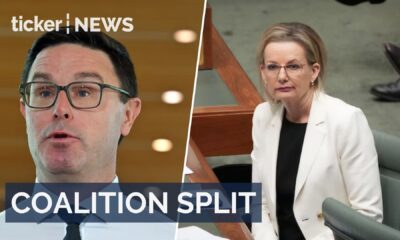Money
Millions of Australians are struggling with credit card repayments
Money
U.S. and China approve TikTok sale to American investors
US and China approve TikTok’s sale to Oracle and Silver Lake amid regulatory scrutiny, with ByteDance retaining 20%.
Money
Markets tumble as Trump tariffs, Greenland rhetoric and Europe backlash collide
U.S. stocks plummet over 800 points amid renewed tariff threats and political tensions from Trump, sparking global trade concerns.
Money
Gold hits record highs as investors flee risk
Gold surges amid global uncertainty, with February futures rising 1.71% to $4,674.20 per ounce, signaling safe-haven demand.
-



 Ticker Views4 days ago
Ticker Views4 days agoDOJ to charge Don Lemon under historic KKK Act
-



 Ticker Views3 days ago
Ticker Views3 days agoBacklash over AI “Indigenous Host” sparks ethical debate
-



 News4 days ago
News4 days agoOpenAI prepares first consumer device amid revenue boom
-



 Ticker Views2 days ago
Ticker Views2 days agoMarket Watch: Greenland deals, Japan bonds & Australia jobs
-



 Ticker Views2 days ago
Ticker Views2 days agoThe trouble with Trump’s Greenland strategy
-



 Politics5 days ago
Politics5 days agoSupreme Court tariffs and Albanese approval drop: What you need to know
-



 Politics2 days ago
Politics2 days agoNationals split from Coalition over Sussan Ley’s leadership
-



 Leaders3 days ago
Leaders3 days agoSMEs struggle in global supply chains: Building national trade resilience






